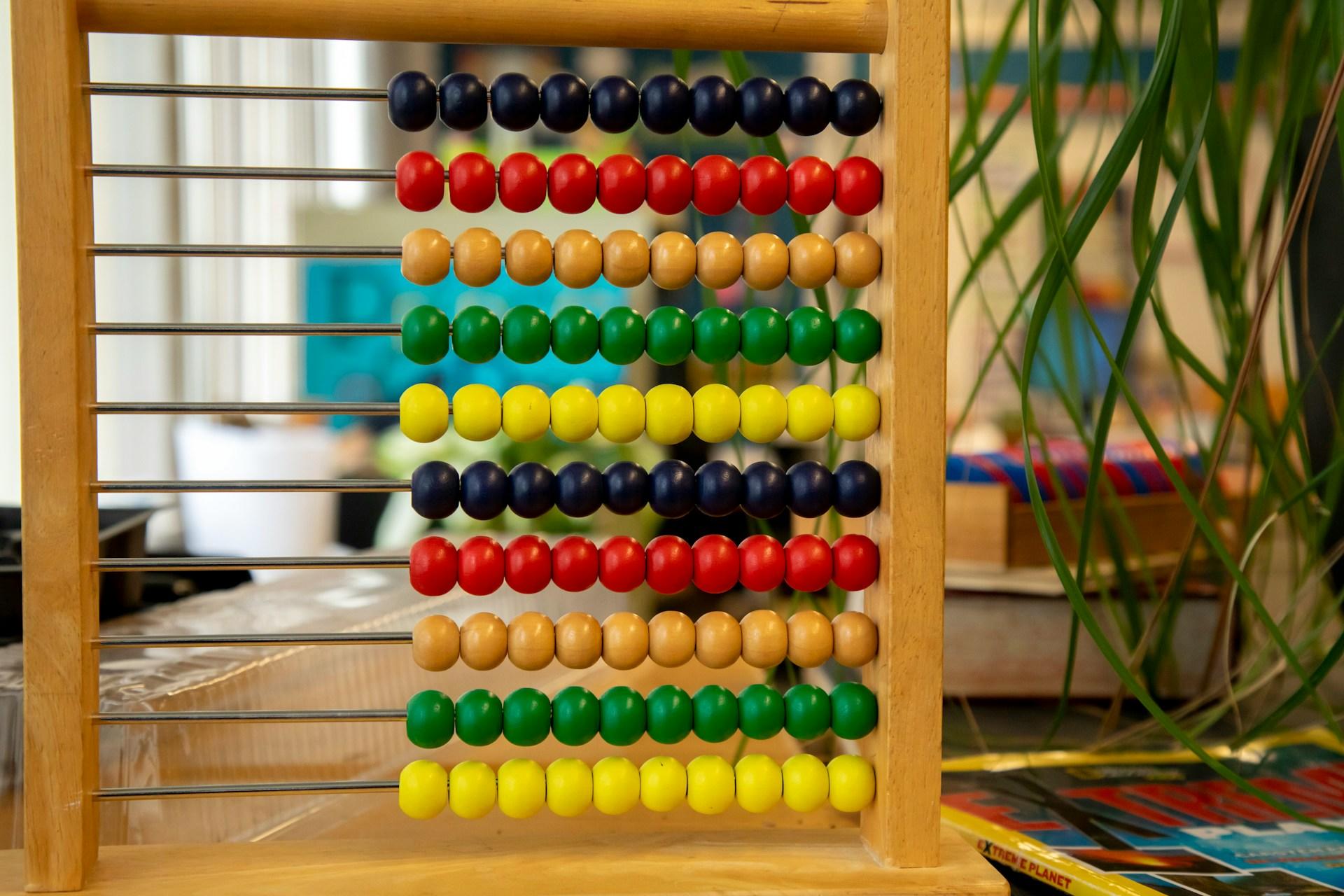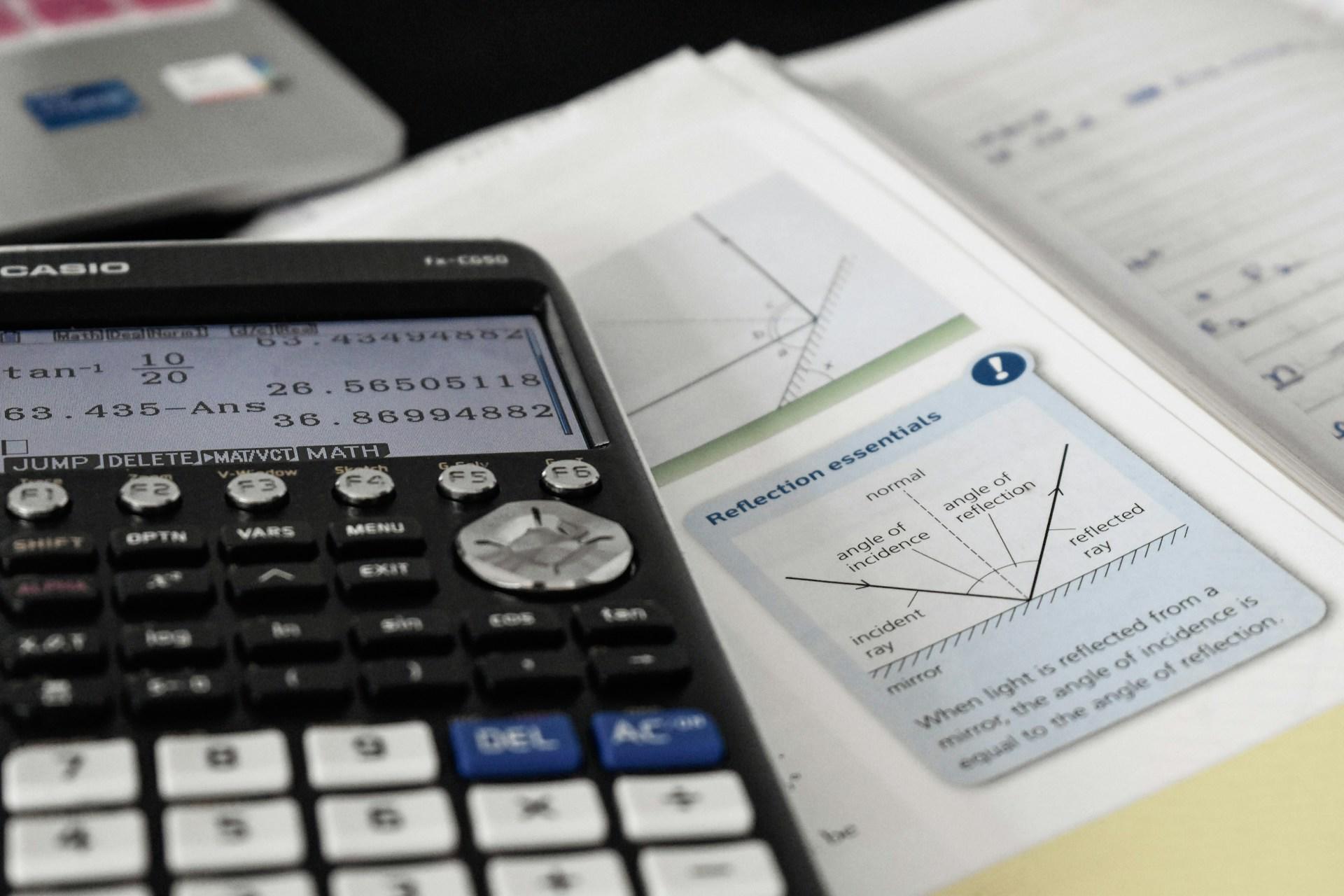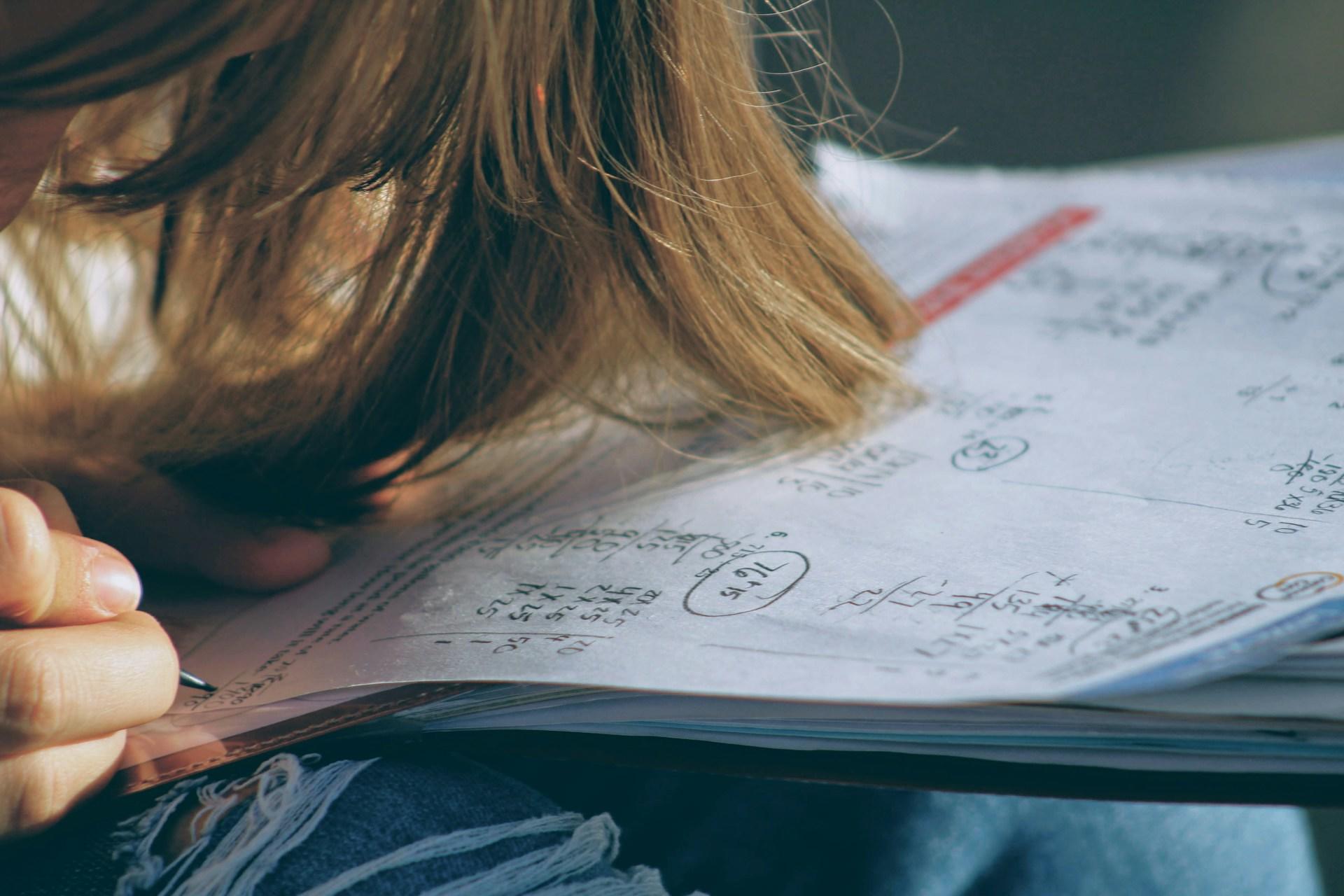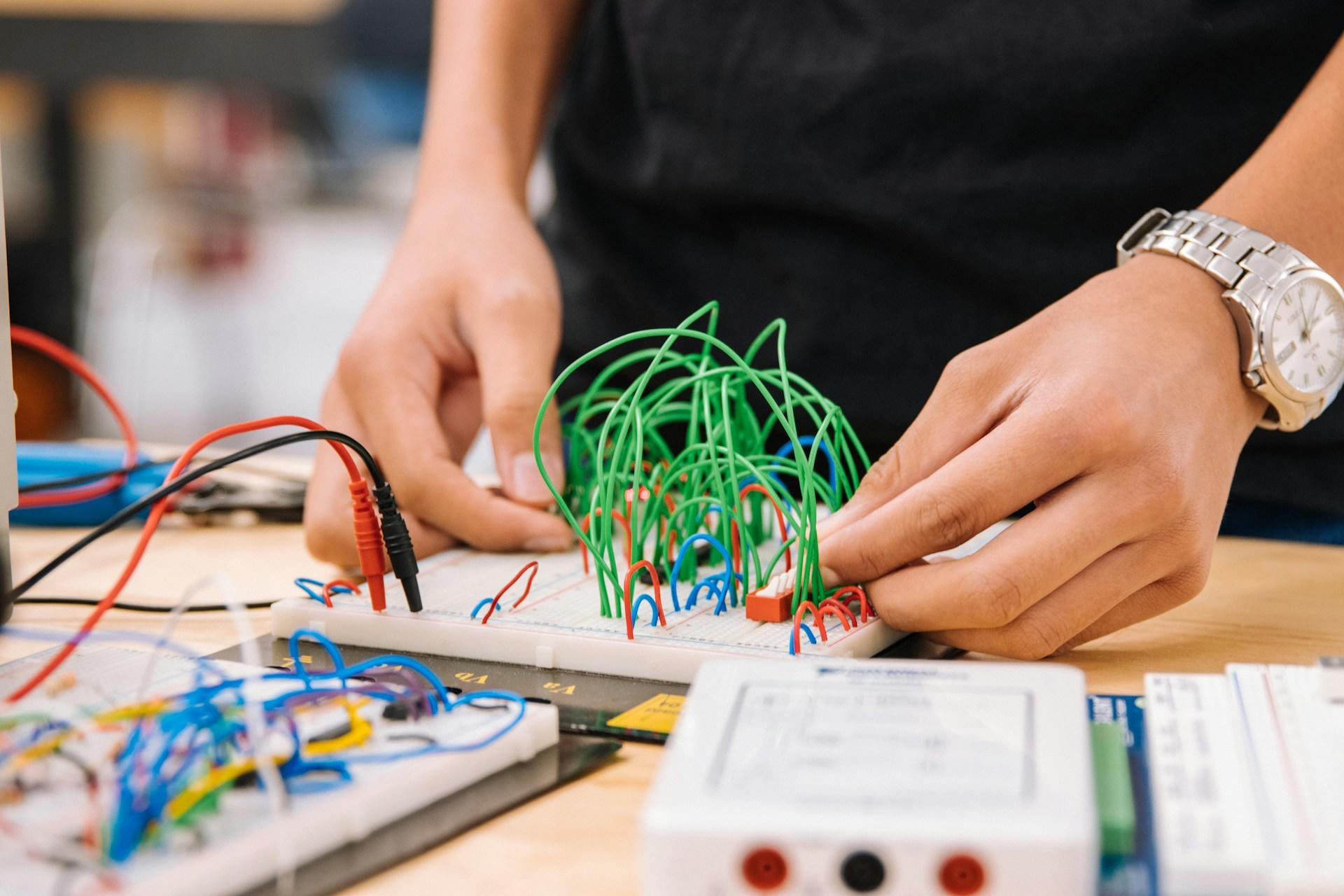Despite students' complaints, we use math far more in everyday life than you'd think. While we couldn't say which is the most essential part of mathematics, algebra is a contender. Algebra is a part of mathematics that uses symbols and rules, manipulating them in formulas. There are different types of algebra, but today, we'll focus on abstract and linear algebra, what they are, the differences between them, how you can learn both, and how a private tutor can help.
Here's a table detailing what we'll cover in this article and the key differences between linear and abstract algebra.
| Aspect | Abstract Algebra | Linear Algebra |
|---|---|---|
| Definition | Study of algebraic structures such as groups, rings, and fields. | Study of linear equations, vector spaces, and mappings. |
| Key Concepts | - Groups - Rings - Fields - Vector spaces - Homomorphisms | - Vectors - Matrices - Vector spaces - Linear transformations - Eigenvectors |
| Focus | Theoretical and structural aspects of mathematics. | Practical applications involving vectors and matrices. |
| Applications | Cryptography, coding theory, computer science, advanced mathematics research. | Engineering, computer graphics, physics, machine learning, statistics. |
| Typical University Classes | - Abstract Algebra - Group Theory - Ring Theory - Field Theory | - Elementary Linear Algebra - Advanced Linear Algebra - Applied Linear Algebra |
| Difficulty Level | Generally considered more abstract and theoretical. | Generally more concrete with direct applications. |
| Job Opportunities | - Mathematician - Cryptographer - Theoretical Computer Scientist - Researcher | - Data Scientist - Engineer - Physicist - Computer Scientist |
| Learning Curve | Steeper, especially for those not comfortable with abstract concepts. | More accessible, especially due to its direct applications in various fields. |
| Foundational Requirements | Strong understanding of elementary algebra and logic. | Solid foundation in calculus and basic algebra. |
| Advanced Topics | - Galois Theory - Module Theory - Representation Theory | - Eigenvalue Problems - Singular Value Decomposition - Tensor Calculus |
Before we cover the two in more depth, let's learn more about algebra's history and origin.

A Brief History of Algebra
While mathematics is at the forefront of science and technology, it's fascinating to learn that math has a rich history dating back millennia.
As for algebra, we need to go back to the Babylonians, who lived in Iraq between the 2nd millennium BC and the 3rd century BC.

Their arithmetic system for solving calculations algorithmically formed the foundation of some of the math and algebra we still use today.
Their formulas could be used to solve the typical math problems that we solve today using linear, quadratic, and indeterminate linear equations.
The Different Types of Algebra
Within algebra now, there are subdivisions like elementary algebra, modern or abstract algebra, linear algebra, etc. Each of these branches of algebra is used for varying applications and solutions.
For example, in elementary algebra, variables are manipulated as if they were numbers, making elementary algebra essential in most areas of math.
Abstract algebra is used to study algebraic structures like groups, rings, and fields.
Linear algebra with its focus on linear equations and mappings, finds practical applications in fields like geometry and weather forecasting, demonstrating its relevance in the real world.
Studying the Different Types of Algebra
Before you can solve algebraic equations or polynomials, you'll need to learn how to solve different kinds of operations.
In math, these basic operations are the ones that you learn in elementary school, such as addition, subtraction, multiplication, division, and fundamental math problems. While we don't often call this algebra, you could consider it the most basic type.
Throughout schooling, students are progressively introduced to more advanced math and algebra. Once basic operations have been mastered, it's common for students to move on to geometry, polynomials, algebra, quadratic equations, matrices, etc.
This is typically where students struggle with math, the moment when everyday math problems become abstracted.

When algebra becomes challenging, remember that a private tutor from the Superprof site can provide personalized support. By searching for 'math' or 'algebra,' you can find a tutor who can adapt lessons to your learning style.
What Exactly Is Abstract Algebra?
Abstract algebra is about understanding the structures that underpin mathematics.
Artin, Michael. Algebra. Prentice Hall, 2010.
Abstract algebra is the field of mathematics that deals with structures, groups, rings, and vector spaces.
In abstract algebra, properties of number systems are abstracted. For example, the definitions of basic arithmetic operations (addition, subtraction, multiplication, and division) are altered, creating a structure known as a ring, provided the operations are consistent.
Abstract algebra, also known as modern algebra, has a history that dates back to the 20th century.
To understand algebra, you must learn about equations, algebraic expressions, functions, variables, polynomials, arithmetic, symbols, vectors, matrices, etc.
As always, a private tutor can help you study abstract algebra. Since every student is different, you must work with somebody who can adapt the lessons to you and how you like to learn.
Here's a good video explaining abstract algebra.

What Is Linear Algebra?
Linear algebra is not a set of tools, but a way of thinking.
Strang, Gilbert. Linear Algebra and Its Applications. Wellesley-Cambridge Press, 2016.
Linear algebra focuses on linear equations and maps, representing them in vector spaces, matrices, etc.
Vectors are quantities that have magnitude and direction. We could express these using coordinate systems.
For example, imagine a solid object that can move in any direction. When two forces act upon the object in a given time, their combined effect is the same as a single force in a given direction. You could cover this concept in both math and physics classes.
Linear algebra is essential to many other branches of math, particularly geometry. Engineering uses a lot of linear algebra, mainly since it can be used to model natural phenomena.
Both physics and engineering love linear algebra, especially given the important roles played by field and vector spaces, matrices, and linear equations in both.
Much like the elements of abstract algebra, there are also linear algebra elements.
We can divide linear algebra into three key branches:
Focuses on the basics of linear algebra: matrix operations, vector spaces, and solving linear equations.
Builds on fundamental concepts with linear transformations, eigenvectors, and inverse matrices.
The application of linear algebra in other fields like engineering and physics, studied at the graduate level.
Each branch of linear algebra focuses on different facets of matrices, vectors, and linear functions.
Elementary Linear Algebra
In elementary linear algebra, students learn about the fundamentals of linear algebra, such as solving matrix operations, computing that can be done on linear equations, and specific aspects of vectors. Here, you'll learn about scalars, vectors, vector space, matrices, matrix operations, etc.

Advanced Linear Algebra
Once you've covered elementary linear algebra, you can move on to more complex and advanced concepts.
As this is still linear algebra, you'll still learn about linear equations, vectors, and matrices.
You'll study linear transformations, inverse matrices, eigenvectors, linear maps, etc.
Applied Linear Algebra
In most instances, students will encounter applied linear algebra once they're studying math at a graduate level.
This is where linear algebra meets other disciplines like applied mathematics, engineering, and physics.
Here's a good video quickly explaining the uses of linear algebra.
Which Types of Algebra Are Easiest to Learn?
Learning abstract algebra or linear algebra can be difficult.
Remember that most students probably worried when they were first introduced to multiplication and division after learning to add and subtract.
Every new mathematical concept should be a challenge. After all, we're typically taught math that builds upon our previous knowledge.
When you go from basic operations to algebra, you're doing some of the most challenging math you've ever tackled.
That said, progression in mathematics isn't necessarily linear, and since every student is different, everybody will learn different things at different speeds.
While we can always discuss how the average student progresses through math, your strengths and weaknesses are the most important things to consider.

Think about what you've found easy and challenging in the past. Suppose you've gone through math classes with relative ease. In that case, you might struggle less than other students when introducing new algebraic concepts.
Can you solve a polynomial equation? Are you well-versed in algebraic functions? Perhaps you've always found solving different mathematical problems relatively easy.
You might be good at math. Even if you aren't, there are ways to get better at math, and even if you don't enjoy the subject, it becomes more palatable if you struggle less with it.
Career Choices with Linear Algebra and Abstract Algebra
Those who study math can work in areas like academia, cryptography, data science, finance, engineering, bioinformatics, and plenty of other excellent careers.
Since linear algebra is usually taught before abstract algebra, most career choices require linear algebra and abstract algebra. However, there are a few career choices that rely far more heavily on abstract algebra than linear algebra.
Here are just some of the many potential careers you could have and whether you need linear algebra, abstract algebra, or both.
| Job Title | Linear Algebra | Abstract Algebra | Both |
|---|---|---|---|
| Academia and Research | |||
| - Mathematics Professor | ✔️ | ||
| - Mathematics Researcher | ✔️ | ||
| - Postdoctoral Fellow | ✔️ | ||
| Cryptography and Cybersecurity | |||
| - Cryptographer | ✔️ | ||
| - Cybersecurity Analyst | ✔️ | ||
| Data Science and Machine Learning | |||
| - Data Scientist | ✔️ | ||
| - Machine Learning Engineer | ✔️ | ||
| Software Development | |||
| - Algorithm Developer | ✔️ | ||
| - Software Engineer | ✔️ | ||
| Engineering and Physics | |||
| - Control Systems Engineer | ✔️ | ||
| - Theoretical Physicist | ✔️ | ✔️ | |
| Artificial Intelligence and Robotics | |||
| - Robotics Engineer | ✔️ | ||
| - AI Researcher | ✔️ | ||
| Economics and Econometrics | |||
| - Economist | ✔️ | ||
| - Econometrician | ✔️ |
Learn Algebra with a Private Tutor on the Superprof Website
Throughout this article, we've mentioned some advantages of working with a private tutor. Tutors can help you with more than just passing your math class. A tutor will allow you to learn at your own pace using the best approaches and techniques.
On the Superprof website, you can find face-to-face tutors and online tutors. If you live in a small town or can't find any local tutors right for you, you can always broaden your search to include online tutors.
Typically, online tutors charge less than their face-to-face counterparts since they don't have to travel to their students and can schedule more sessions each week.
Most of the tutors on the Superprof website also offer the first session for free, so you can try a few before choosing the right math tutor for you.
Search for "math" or "algebra" on the Superprof website today!
Summarize with AI:
















Bra pedagogik för att på en allmän nivå förklara skillnaden mellan lineär algebra och mer generell algebra och tillämpliga arbetsområden